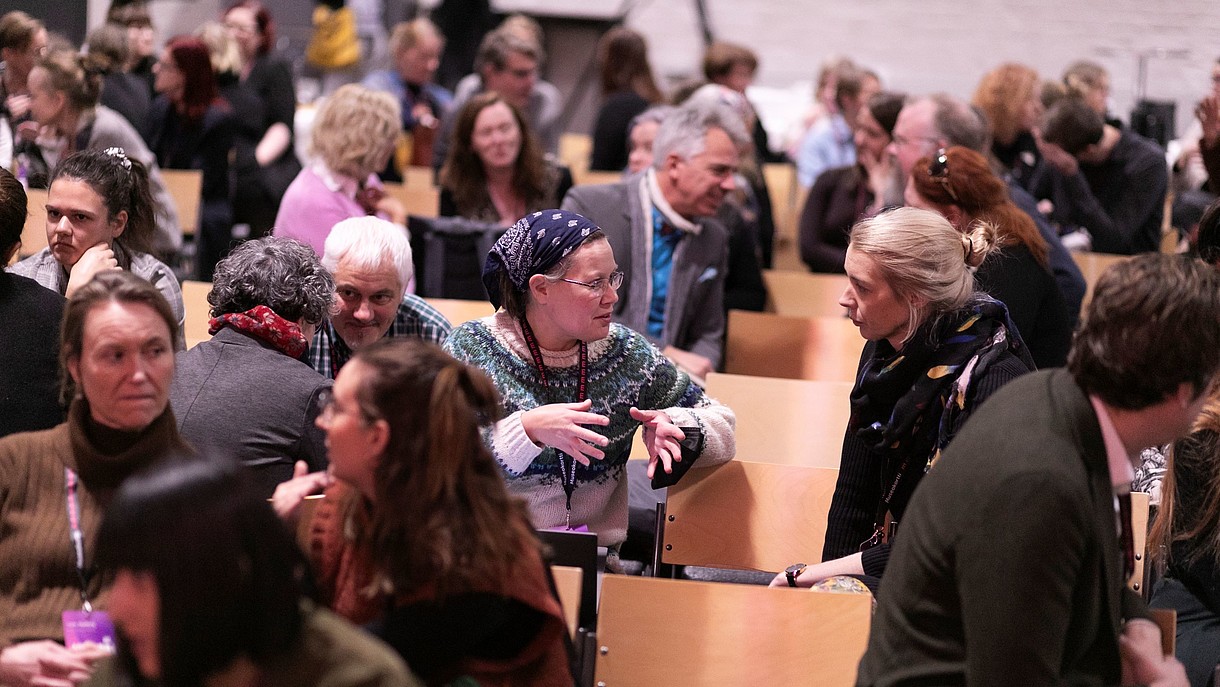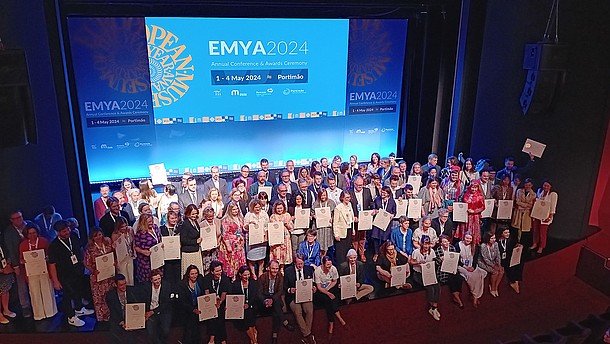In an interview facilitated by Eva Koppen, NEMO Board Member and Educational Programming & Training at the Association of European Jewish Museums, Claudia Casali, Director of the International Museum of Ceramics, shared her museum’s first-hand experience with natural disasters after the floods in Italy earlier this year. The museum was filled with water and several objects were severely damaged. The staff had to work quickly and make fast decisions while developing emergency plans. Global warming will increase natural disasters, such as floods, in the future and thus putting museums and their collections at risk.
NEMO conference closed with pledge by NEMO and the European museum sector for future sustainability of the planet
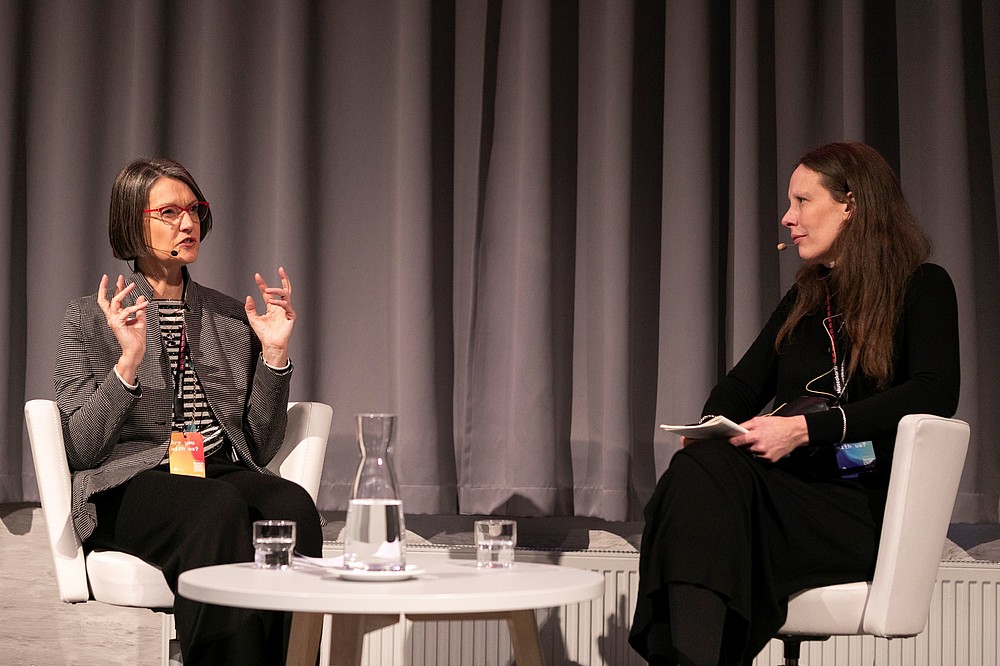
Talk: Taking action on climate
The next session brought together three museum professionals and climate activists in a conversation about taking action on climate: Rebekka Eschauzier, Extinction Rebellion Belgium, Emek Yılmaz-Sancar, Museums for Future Türkiye, and Vera Carasso, Dutch Museums Association. What can museums learn from climate activists and how can climate activists start collaborating with museums rather than only using them as a stage for their calls for action? Eva Koppen stayed on the stage to facilitate the conversation between the invited speakers and the conference participants.
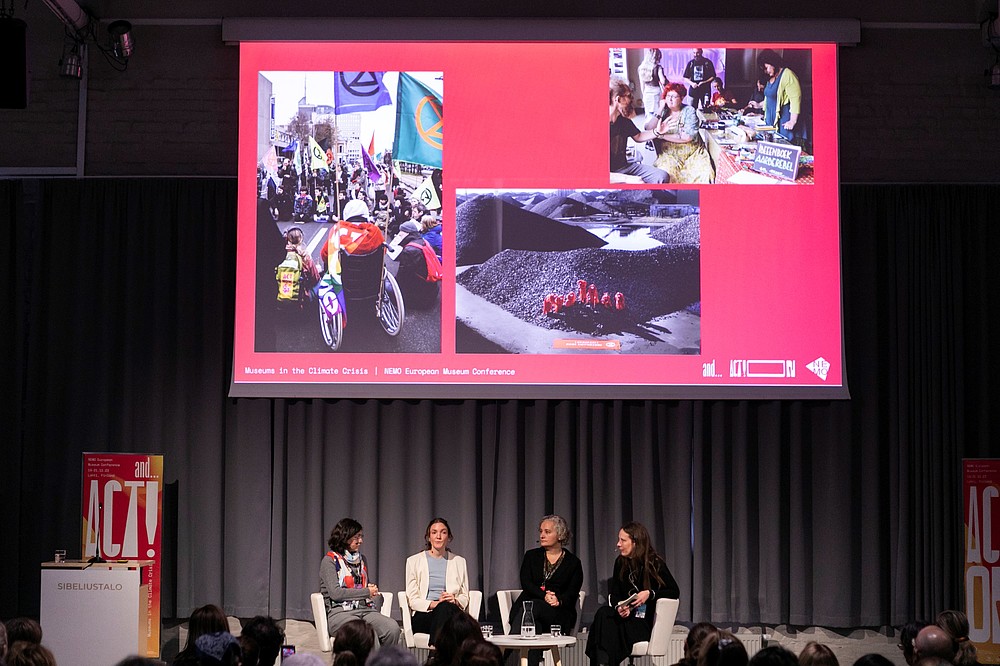
Museum Slam on Stories of Action
The conference participants got to meet six inspiring individuals, who shared six equally inspiring projects. The aim of the slam session, which was moderated by Rebecca Thonander, NEMO, was to to empower the audience to get started with climate action at their institutions or offer a motivational boost to carry on with an ongoing project. The speakers showcased that there is a whole range of small and big steps of climate action to take in museums. All steps are important since, at the end of the day, what matters the most is that we do act.
Ana Salvador, House of European History, shared the steps behind developing the exhibition “Throwaway - The History of a Modern Crisis”, which made the House of European History take a critical look at its own operations and literary sort through its trash.
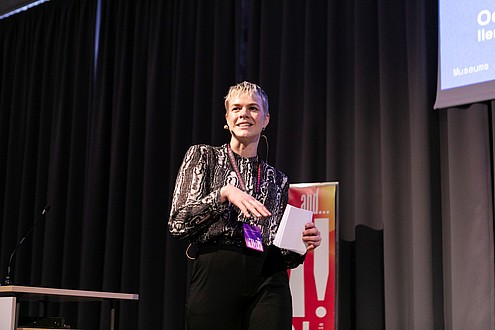
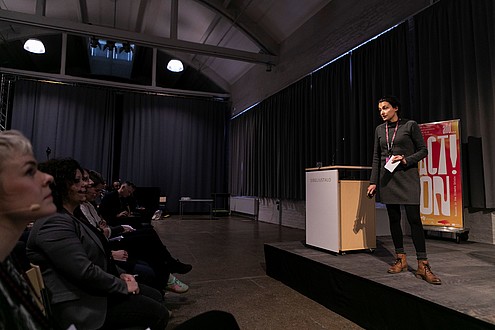
In 2020, the Natural History Museum in London boldly declared planetary emergency and presented a vision for a future where people and the planet can thrive together. Harry Cutmore explained how the project Generation Hope: Act for the Planet supports this strategy by making the museum move beyond solely providing information, to being a source of empowerment for young people so that they have the tools to be part of the solution. Ultimately, the museum hopes to create the next generation of climate advocates.
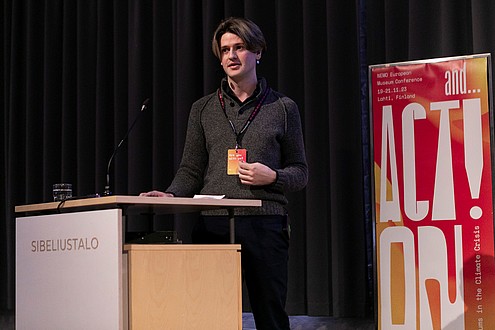
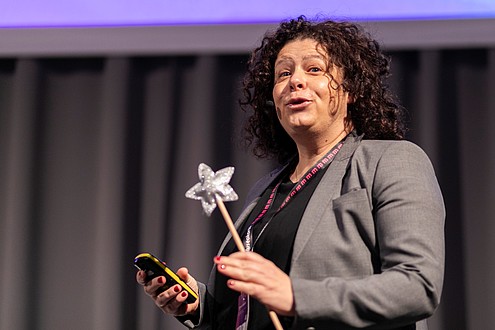
Cato Ebeling Koning, National Maritime Museum in Amsterdam, explained how the museum works towards becoming eco-positive by 2030 by reducing its ecological footprint and becoming a circular museum. Urška Repar, Museum of Recent History Celje, shared how despite being a very small team and having limited resources, the museum finds ways to be more sustainable in its operations. She highlighted that sustainability sometimes goes hand in hand with finding creative solutions that also suit management in terms of being inexpensive, economical and practical.
After pondering the role of museums in the fight against climate change, the BELvue Museum decided to curate change and went on a journey towards a sustainable tomorrow. An Lavens shared the museum’s sustainability initiatives and what kind of effect they have had for the institution and for the visitors. She also asked the conference participants what came to their mind when they think about sustainability and museums, the results can be viewed in the word cloud below. The sixth and final presentation was delivered byIlenia Valerio share how the Natural History Museum in Oslo have invited secondary school and high school students to share their thoughts about climate change, and how they relate to it. The educational programme “Climate Dialogue" gives teenagers a chance to discuss climate change openly and freely in a safer space.
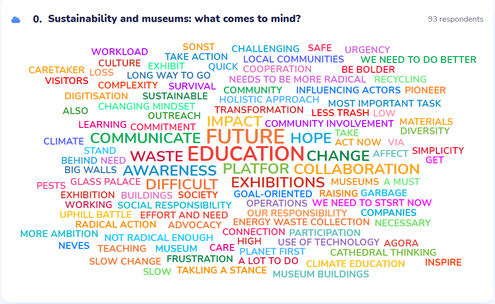
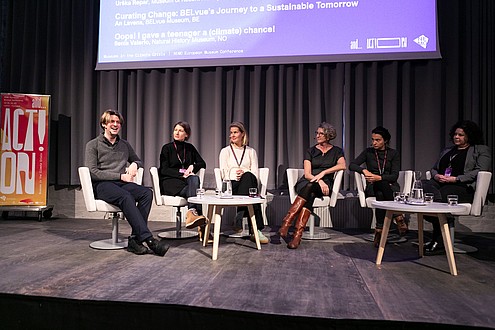
European museums pledge to sustainability
Before the lunch break, David Vuillaume, NEMO Chair, announced a statement that had been drafted and finalized during the conference. The statement is a joint effort between directors of the European national museum organisations. It acts as a pledge by NEMO and the European museum sector to sustainability:
“Our ethical and professional priority is to work with our communities for the future sustainability of the planet. Museums have a critical role to play in environmental sustainability and imagining our possible futures. Our commitment is that we will use our diverse collections and the stories that they hold to inspire people and facilitate change. We realise that it is no longer possible to preserve all heritage and collections in their current conditions. We are committed to re-evaluating our collections in terms of their social, historical, environmental, and educational impact.”
Two new projects by NEMO to help museums act for climate were also introduced. An interactive map will collect and show how museums are already acting on the climate crisis. NEMO encourages museums across Europe to participate in the crowdsource project by submitting their approaches, formats, and scopes via bit.ly/NEMO-Climate-Map-Submission
To further support museums to take political action in the climate crisis, NEMO also its new research on museums and climate related policies.
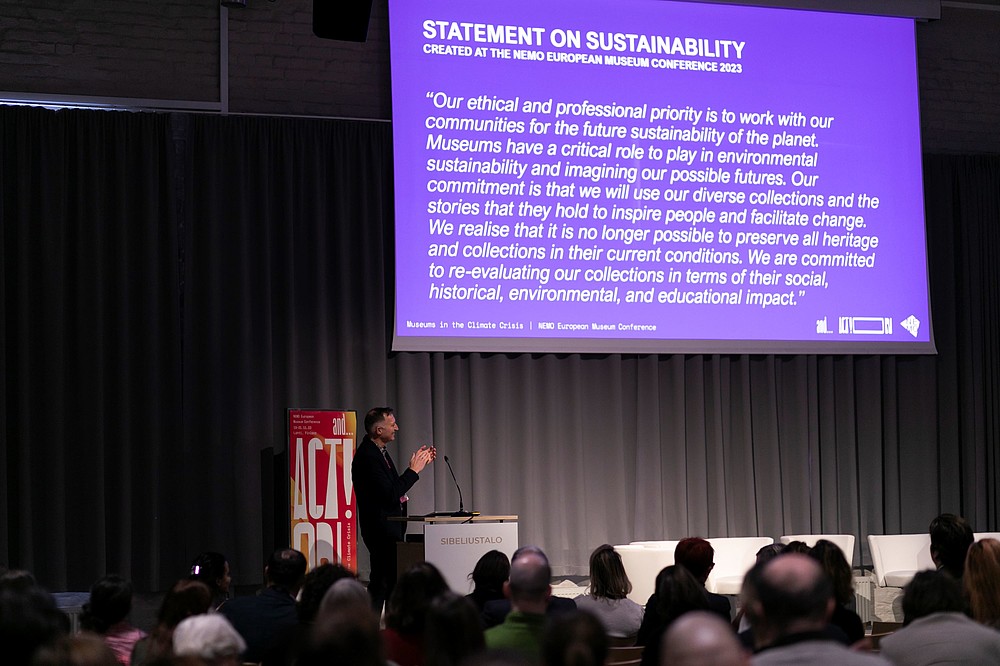
Workshops
The afternoon presented another opportunity for practical hands-on learning in one of three workshops organised by NEMO's Working Groups:
- Fighting climate change through art education
Organised by NEMO Working Group LEM - The Learning Museum - GreenICT – Sustainable use of digital offers
Organised by NEMO Working Group Digital Transformation - Amplifying democracy: Museums as catalysts for fostering dialogue
Organised by NEMO Working Group Sustainability and Climate Action
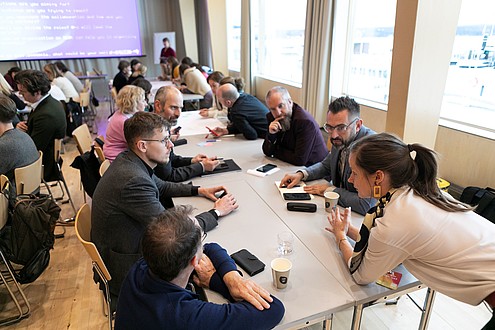
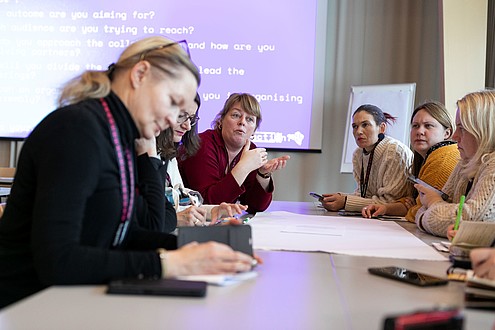
Members of NEMO were welcomed to the Annual General Meeting to get an update about NEMO’s operations in the last year and upcoming activities in 2024. They also got to exchange in small groups on eight different topics regarding possible collaborations and shared challenges and opportunities. Two new board members were elected to fill two empty seats of the NEMO Executive Board. NEMO thanks Eva Koppen and Lodewijk Kuiper for their diligent work in the board and welcomes Vera Carasso, Dutch Museums Association, and Paulina Florjanowicz, Polish National Institute for Museums.
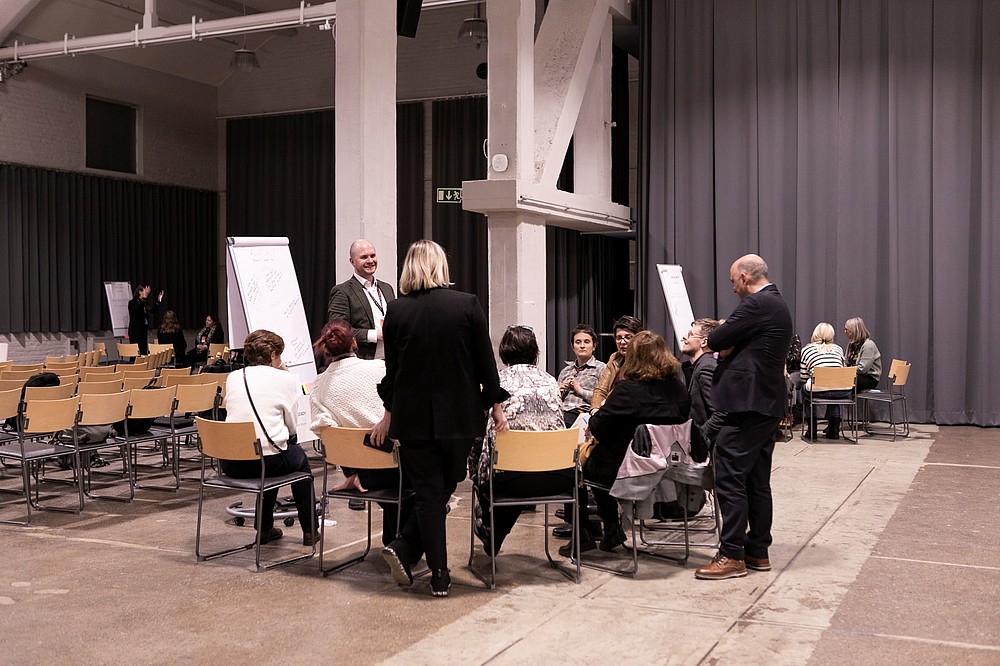
The conference was closed on a festive note with a reception at the Ski Museum Lahti overlooking the ski jump towers.
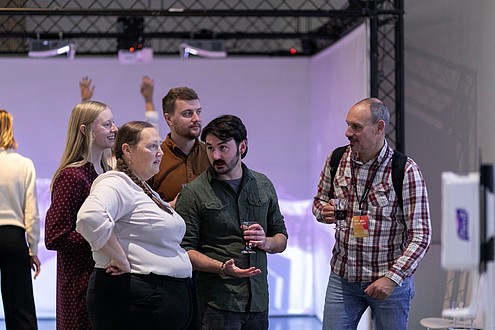
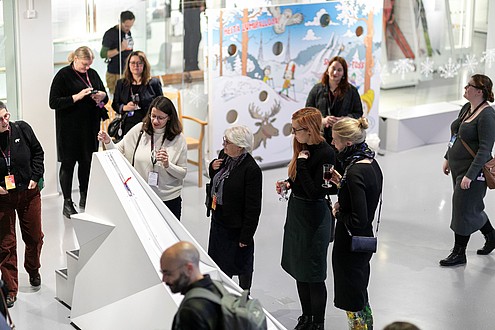
NEMO hopes to see the participants again at the 2024 NEMO European Museum Conference in Sibiu, Romania, from 10-12 November!
The conference was hosted by the Finnish Museums Association with support by the Finnish Heritage Agency, the Finnish National Gallery, the city of Lahti and thanks to co-funding by the European Union.
Selected presentations were documented and will made available online in the weeks after the conference.



